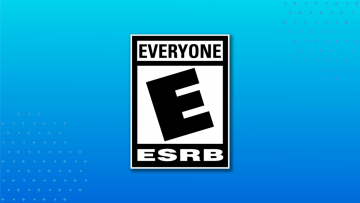Hi everyone,
just sharing the slides for my presentation next Wednesday about Emulating videogames and copyright infringement. Have a great weekend ahead!
Sze Perng
By Sze Perng on November 24, 2022
Hi everyone,
just sharing the slides for my presentation next Wednesday about Emulating videogames and copyright infringement. Have a great weekend ahead!
Sze Perng
By Adam Sanders on November 23, 2022
https://www.bbc.com/news/technology-63730316
In Amit and I’s presentation about video game regulation, we briefly discussed China’s gaming regulatory regime. China has some of the strictest video game regulation in the world. As discussed in class last week, China restricts the amount of time minors can play video games, with youth gamers only being able to play 3 hours per week. Chinese companies uses facial recognition and registration to enforce these measures.
It was interesting to see yesterday that soon after posting our presentation, several articles announced that Beijing is showing signs of easing its intense crackdown on the video game sector. A report published by a key Chinese industry body praised China’s progress on reducing gaming addiction among minors. The report found that 75% of young gamers now played for less than three hours a week. Experts posit that the report may be signal of a better outlook for the Chinese gaming sector, with less strict controls on the horizon. In conjunction with the report, Chinese regulators approved a batch of 70 new games for release, another positive signal for the sector given there was previously a freeze on new releases.
However, a more skeptical and perhaps more realistic view finds that this report comes amidst a backdrop of declining gaming revenues in China. Perhaps this announcement is being used to lay the ground work to ease economic hardship in the sector, rather than show a real measure of China’s long-term success in controlling gaming. Despite the signals, it remains to be seen if China will truly ease up its strict regulations in the long term.
By Lovneet Aujla on November 23, 2022
The Wired has an interesting article that speaks to how games have the “power to create social change” (see: https://www.wired.com/story/games-for-change-google-nonprofit-fun-games-social-good/). The example that Wired gives is King Kingdom which “teaches players about internet safety, like building strong passwords and only interacting with trusted friends online” (see: https://www.wired.com/story/games-for-change-google-nonprofit-fun-games-social-good/). This article pointed me to a non-profit: Games for Change.

(image from: https://www.wired.com/story/games-for-change-google-nonprofit-fun-games-social-good/)
One initiative from Games for Change is “Raising Good Gamers” which holds “video games and new media as spaces of learning, social exchange, and civic engagement among youth will not be realized without a shared public agenda addressing the growing problem of toxicity online” (see: https://www.gamesforchange.org/initiatives/). Earlier this year I had written a post in regard to Call of Duty’s new code of conduct. While its efficacy may be questioned it nonetheless demonstrates that developers are live to the issue of toxicity online. Developers are speaking out against this issue and I believe that goes to Games for Change’s point that we need a shared agenda that addresses online toxicity. Games, and online games are hugely powerful social spaces. I remember during the pandemic how important video games were. With nowhere else to go my friends and I often turned to Call of Duty to socialize. Even today with our schedules, gaming is one of the only ways to consistently “get together” and talk.
Moving forward I believe online games will genuinely be characterized as social spaces in the mainstream (if they aren’t already). Do you think developers are doing an adequate job of (a) recognizing that their games are “social spaces”; and (b) addressing the toxicity problem.
By sara biegel evans on November 23, 2022
Hi guys,
Our presentation next week will be on sexism in gaming, we would really appreciate it if you could take the time to fill out this short survey (it only takes a minute).
https://www.surveymonkey.com/r/DHWFFF2
xoxo,
Niamh, Sara, and Stella
By Jon Festinger on November 22, 2022
By sara biegel evans on November 22, 2022
In a puzzling (to me) PR move, Walmart has created two “experiences” in the popular meta-verse game Roblox.
Roblox has an overwhelmingly young player base and the Walmart experiences are designed to target the “next generation” of Walmart shoppers with celebrity cameos and games featuring popular children’s toys.
I can’t help but feel that the young demographic of Roblox combined with Walmart’s child-focused content could be in breach of various standards governing marketing to children. It’s all very dystopian…
There are also some interesting jurisdictional issues here – Roblox is an international platform and certain areas with stricter marketing laws (such as the EU) might have different responses to real-world adverting in the metaverse.
Also, given the general attitude of mockery around the metaverse, this seems like a misguided PR move. It doesn’t help that they are selling branded merch in Roblox and calling it “verch” (virtual merch).
Sources:
https://www.forbes.com/sites/walterloeb/2022/10/04/walmart-enters-metaverse-with-roblox-experiences/
https://www.betterinternetforkids.eu/practice/articles/article?id=6969918
https://www.cnn.com/2022/09/26/business/walmart-roblox-metaverse/index.html
By NY Bae on November 22, 2022

Yesterday’s New York Times included an article regarding the suspect in the attack on Nancy Pelosi’s husband.
David DePape, the suspect in the attack against Speaker Nancy Pelosi’s husband, apparently “had an obsession with video games as a boy.” At a low point in life, DePape “retreated into isolation, spending hours each day in the online worlds of gaming and chat rooms.” Eventually he became engaged with the Gamergate online campaign, which fed his right-wing conspiracy theories.
The article continues to hint at some sort of link between DePape’s disposition and video games. Growing up, he “liked to retreat into the fantasy worlds of video games and chose not to go to his high school dance.” Perhaps the author is implying the reclusion from playing games and resulting engagement with fantastical worlds makes one more distant from reality and more prone to becoming a conspiracist?
As an acquaintance of DePape says, “So he dissociated, and he dealt with his feelings by basically playing computer games whenever he wasn’t working, … He had no friends. He had no social life.” But isn’t this too big of a leap to say therefore he committed this crime?
As games become more social and online (e.g., MMORPGs, MOBAs), can we really say video games relate to hermitage, conspiracy theories, and even crime? This seems counterintuitive.
On the other hand, games are becoming more real (to a point where, as per Professor Festinger, we should call it a “replacement reality” instead of “virtual reality”). Indeed, DePape “believed that he was living inside a computer simulation,” and “would feed birds and talk to the squirrels.” At what point does virtual reality become so real life-like to constitute hallucinations?
But again, to connect this with conspiracy and crime is an overgeneralization. The gaming industry would collapse if this connection was truly extant!
By amit chandi on November 22, 2022

Hi everyone,
Adam and I have made a presentation for our group project on video game ratings, specifically focusing on the North American rating agency, the Entertainment Software Rating Board (ESRB).
Here is a link to watch our presentation: https://youtu.be/TacZvjgYDvk
Thanks!
By Sze Perng on November 21, 2022

If you have been around games for any period of time, you are probably familiar with gaming/console wars. Since the rivalry between Sega and Nintendo in the 1980s and 1990s, videogame console makers have been vying for your attention and hard earned money by offering console exclusive games, online multiplayer services or simply just by giving you a massive discount on the price of the console itself.
Microsoft acquires Activision Blizzard
In 2022, the intense rivalry between Microsoft and Sony shows no signs of abating. In fact, Microsoft’s proposed acquisition of Activision Blizzard for $68.7 billion is indicative of ambitious plans to gain further control of the videogame market, not solely by outselling competitors in terms of consoles but by squeezing them out of videogame market altogether.
Afterall, Activision Blizzard owns the intellectual property to Call of Duty, arguably the progenitor of modern first person shooters and one of the most valuable gaming IP worldwide (Call of Duty games typically rank amongst the biggest selling games in the year they are released in). A potential strategic move by Microsoft to undermine Sony’s competitiveness post acquisition could come in the form of denying Sony’s Playstation gamers access to current/future editions of the Call of Duty games and to promote Microsoft’s Xbox platform instead.
Historically, Microsoft has followed this approach in several past acquisitions of gaming studios, where it made future game releases from those studios exclusive in consoles to Xbox (such as the upcoming Starfield and, based on Microsoft’s public statements, Elder Scrolls VI from Bethesda, a studio Microsoft acquired as part of its USD 7.5 billion acquisition of ZeniMax in 2021).
However, could it be that such concerns are overblown? Afterall, Microsoft’s gaming chief Phil Spencer has said publicly that Microsoft is committed to making the same version of Call of Duty available on Playstation on the same day the game launches elsewhere. Financially, it would also not be in Microsoft’s interest to shut out Sony’s Call of Duty gamers who likely represent a large portion of the Call of Duty gaming community. The risk is that such gamers would seek other titles in the first person shooting genre (competition amongst game studios in this area is intense) and have shown that they will vehemently reject anti consumer practices. (See gamers shutting down NFTs in gaming)
Sony has voiced out its concerns over Microsoft’s proposed acquisition. In a filing with regulators in Brazil, Sony has stated that the Call of Duty franchise is so popular that any limitation on its availability could influence which console consumers chose to buy, potentially disadvantaging its PS5 console, the current console market leader. Indeed Microsoft need not even resort to drastic tactics like releasing Call of Duty Xbox exclusives and shutting Sony out of the market. In the era where gamers are increasingly demanding greater levels of polish and user satisfaction experience in gaming, the prioritisation of Microsoft users when it comes to things like updates, bug fixes, download speeds could convince gamers to make the switch.
However, Sony itself is guilty of purchasing game development studios. Once Microsoft announced its intentions to purchase Blizzard Activision, Sony blitzed ahead with its acquisition of Bungie and while Bungie is not the behemoth that Activision is, it still owns the IP to valuable franchises such as the Halo and Destiny series.
Unfair Competition and Gaming as a service
The onslaught of MnA activity has attracted the intense scrutiny of competition regulators. The UK’s Competition and Market’s Authority (CMA) recently released its decision on Microsoft’s acquisition. The CMA took the view that the acquisition could significantly reduce competition not only for gaming consoles but also cloud gaming services.
What is significant is the CMA’s cognisance that the current competition is not merely confined to the sale of videogame consoles or videogames, but extends to the provision of gaming as a service. This surpasses the traditional boundaries of what was considered competition. Previously where the performance of market participants was assessed in accordance with the number of units sold, be it consoles or games, this assessment now has to be holistic. This requires taking a whole of gaming approach where all aspects, including service delivery, support and merchandising across all platforms have to be considered collectively.
In particular, the CMA notes that Microsoft already has a combination of assets that is difficult for other cloud gaming service providers to match. Microsoft already owns Windows, the operating system where most PC games are played. It also has a large and well-distributed cloud infrastructure. Collectively, these enable Microsoft to be able to host games on its servers on preferential terms and reach gamers throughout the world without having to pay fees to third party platforms. Microsoft can also leverage on its dominant position as the owner of Windows to charge game studios fees to design and test games on their platforms. The concern is that by leveraging Activision’s content and Microsoft’s wider ecosystem, Microsoft will have an unparalleled advantage over current and potential cloud gaming service providers. This could result in increased concentration in cloud gaming services or the market ‘tipping’ to Microsoft, and ultimately deny consumers the benefits of competition between new and emerging providers vying to succeed in cloud gaming.
Microsoft’s market dominance as seen from a whole of gaming perspective and not merely a console perspective is further highlighted by the fact that its main rival Sony, lacks such systemic advantages. Unlike Microsoft, it does not have an operating system where most PC games are played. In addition, Sony’s online gaming catalogue and cloud gaming services may not be as attractive as Microsoft’s. In fact Sony went as far in its comments made to Brazilian regulators by stating that the lower immediate costs of subscription services to consumers may cause publishers who recoup significant investments in games by selling them for an upfront fee to become uncompetitive This could reflect anxieties in Sony’s management that they may lose customers for both consoles and cloud gaming who may be lured by the Microsoft’s wider game offering and the relatively lower upfront cost of a subscription model.
If Microsoft’s successfully adds the Call of Duty franchise to its cloud gaming lineup, the disparity between its cloud gaming offering and Microsoft’s would be further exacerbated. Another macroeconomic factor is that Sony likely lacks the financial ability to raise capital in the same magnitude as Microsoft to make acquisitions on the scale of the Activision deal. Afterall, Microsoft has its highly profitable business arm selling the suite of Microsoft Office products and enterprise level solutions to leverage on and this is reflected in the massive disparity in their market capitalisations. (Microsoft’s is $1.81 trillion compared to Sony’s $100 billion. Some commentators have even remarked that Sony is the David to Microsoft’s Goliath in the gaming wars)
What does gaming as a service mean for gamers?
For gamers, things such as console exclusive games, while not revolutionary, have been anathema to the enjoyment of the entire gaming experience. (Unless one is a self professed Sony/Microsoft fanboy who denies the existence of products better than the company’s whom they support)
The greater implication is that gamers would be placed in a position to have to make increasingly rational choices with greater forethought when it comes to purchasing. This is difficult, often because game purchases are made impulsively on the basis of emotions. Game companies further exploit that feeling of hype and the fear of missing out through aggressive marketing campaigns to sell more copies.
However, this is much needed because the decision to purchase a console/platform/game also results in gamers buying into a particular ecoystem and its attendant services. While gamers may initially be attracted by the low prices of consoles/games/subscription services, they may find it increasingly difficult to change gaming service providers in the future because those companies are finding ways to make it unattractive for gamers make the switch. To be fair, some of these services do bring about value by giving gamers never before levels of convenience (ability to play on the same file across platforms, at home and on the go, see the Steam Deck) or to connect with other gamers (stream while playing without the need for third party software) The concern is when the line crosses into unfair competition, and companies exploit their incumbent (some would say monopolistic) positions to make massive profits at the expense of gamers by blocking competition.
So while Microsft and Sony are burning their cash from their war chests during this generation’s incarnation of gaming wars, gamers should enjoy while it lasts. Games are no longer about the product but about the complete service and that just gives big corporates like Microsoft and Sony more opportunities to get gamers to part with their hard earned money without them noticing it.
Sources:
https://www.ft.com/content/780c0432-554e-48fe-96df-6ffa4db9b5de
https://newsletter.gamediscover.co/p/inside-the-microsoft-vs-sony-unfair
https://www.theverge.com/2022/8/10/23300133/microsoft-sony-xbox-game-pass-blocking-rights-accusation
https://www.bloomberg.com/news/features/2022-10-17/how-gamers-beat-nfts?leadSource=uverify%20wall
By jakub czypinski on November 20, 2022

I know this is not related to a video game per se, but we’ve discussed the metaverse on a number of occasions in this class and I thought that this interesting article I came across was worth a mention.
Tuvalu, a small nation of roughly 12,000 in the South Pacific, is highly vulnerable to the effects of climate change. Sea level rise threatens the very existence of Tuvalu (literally), which is forecasted to be completely submerged underwater by the end of the century if current temperature trends continue. As a result, the nation has sought innovative, though dire, solutions in an effort to preserve its culture and history. Tuvalu’s Foreign Minister, Simon Kofe, explains that as the nation’s land disappears, they have no choice but to become the world’s first digital country.
The first step would be to move administrative and governance systems online in order to preserve the continuity and function of government. Afterwards, Kofe imagines recreating Tuvalu through a “digital twin” using augmented and virtual reality, preserving the nation piece by piece in order to preserve its culture, history, and identity for future generations.
Given rapid advances in technology, it may indeed be possible to recreate Tuvalu digitally. A more difficult endeavour, however, is creating a legal framework by which the state could maintain its own sovereignty. After all, land is often seen as fundamental to our current understanding of what “sovereignty” is. Could virtual realities and “digital nations” disrupt this requirement?
The article can be found here: https://www.cbc.ca/news/climate/climate-change-tuvalu-stateless-metaverse-1.6657035